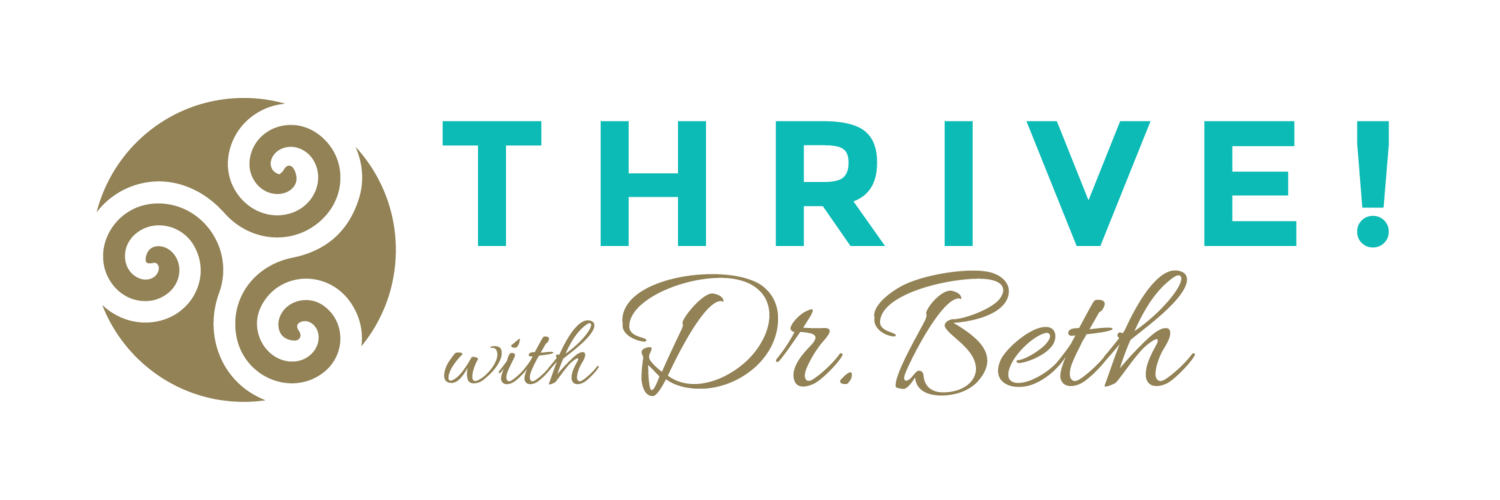
Beth Haggett, MSW, LCSW, Ph.D. Master Personal & Executive Coach, NBHWC
“I believe in the power of positive thinking—
but change and freedom also require positive action. Anything we practice, we become better at.” -Dr. Edith Eger, The Choice
In my work over two decades of teaching and training coaches and “becoming” a coach myself, I have realized that coaching is a practice. It is similar to other practices such as deep breathing, mindfulness, yoga, or any regular meditative, musical, or spiritual practice. It requires time, dedication, consciousness, awareness and an ability to shift between what is going on internally and what is happening in our interactions with others. In the world of KCS® (Knowledge-Centered Service), we call this the “Solve and Evolve Loop.” (The mark KCS is a service mark owned by The Consortium for Service Innovation). In systems thinking, we call this A and B loop learning. The A-loop can be defined by what is happening at the moment and the B-loop is our evaluation and adjustment of what is happening at the moment in order to create the results we actually want to have happen over time.
One of the things I love best about coaching is that coaching skills are transferable. I love teaching skills that will help people be better at their jobs and I really love teaching people skills that will make them better in their lives. I’ve also seen that when people are more effective in their lives, they are happier and more effective in their work, so this turns out to be a wonderful reinforcing loop as well. This reciprocity of learning and benefit means that we have opportunities to practice coaching in our everyday lives both at home and at work, making us more effective at both.
Coaching is fundamentally a way of being in the world. One of the first and foundational skills that I teach in my Coach Training Workshops, and to my students at Saybrook University in the Integrative Wellness Coaching Program, is the practice of diaphragmatic breathing. Deep belly breathing is one of the easiest and fastest ways to trigger the relaxation response in the Vagus nerve, influencing the autonomic nervous system, switching us out of “fight or flight” and into “rest and digest” mode. By learning to consciously facilitate the switch from the sympathetic to the parasympathetic branch of the nervous system we can actually influence the autonomic nervous system to attune to our environment differently over time.
Evidence indicates that our breath can be used as both a barometer and a regulator. This means that we can learn to notice when our breathing is fast or shallower in our chest, (A-loop observation) and this informs us that our stress level is high and we may need to either adjust our circumstances or our perception of them (which can lead to B-loop learning and change). When I am feeling stressed and cannot change my circumstances, I have learned to remind myself that “All is well in my world, I am at peace” as I simultaneously relax my body and slow my breathing. I have learned to make these shifts and remind myself to calm my body and that I am resilient and resourceful and can manage stressful situations well.
This is just one example of our breath being used as a regulator. When we recognize stress in our body and consciously slow and deepen our breathing, we send signals to our brain that “all is well, and I am safe” which changes our breathing and our physiology which affects our heart and the signals it sends to our brain as well.
The Vagus nerve has been called the “Nerve of compassion” because as we trigger the relaxation response and move into parasympathetic mode, we are more aware of others and are able to feel empathy and compassion. This increases our ability to connect more deeply. Our heart picks up on this and sends signals to the brain that we are safe and connected. This can create a flood of hormones such as oxytocin which reinforce this process, and which has been shown to improve our health and sense of well-being.
We have opportunities to practice coaching often in everyday life. One such example from my own life happens often with my children and grandchildren. A few minutes into a call with my daughter and I sense into my intuition and realize there is something on her mind that she hasn’t gotten around to sharing yet. I adjust from “chatting mode” to tune into my breath and pause and ask a question, “So, how are you doing?” and pause a bit longer to wait for her response. As she begins to tell me, I slow my breathing and am aware of not jumping in too soon or trying to problem-solve or offer opinions. I tune into my heart area where I can access my love for her and the reminder to myself of one of the most critical elements of coaching that “people are whole, capable, and resourceful.”
Being reminded of this frees me of any need to rescue, offer unsolicited advice, or problem-solve for her. I may have to make some “B-loop” internal adjustments as my own need to “be valuable,” or “help” or “be right” about something comes up for me. This requires me to first recognize the internal urges, return to my breath and practice letting go of my own agenda and once again tune in to my daughter and her innate ability to be the expert in her own life.
I can ask more open-ended questions which almost always begin with “how or what” such as “What matters most?” “What do you want?” “What outcome are you hoping for?” “What do you feel you need in order to move forward?” “What is your first step?” “When are you hoping to do that by?” “What resources do you need?” “How does that feel in your body?” “How will you go about creating that?” “What do you envision?” “What will that mean for you?” And if it feels right, chiming in with a reminder that “You’ve got this!” or “I hear your excitement and enthusiasm and I am thrilled for you!”
This same way of being can happen at work whether we are a manager, a supervisor, a peer or working in an actual coaching role. When someone approaches us, we can actually look at them, smile, consider what it is we appreciate about this person which switches us out of our head and into our heart area. The amazing research done by Heartmath informs us that our heart is actually 100,000 times more powerful electrically and 5000 times more powerful magnetically than our brain is and sends more signals to the brain than the brain sends to the heart (https://www.heartmath.com/science/).
So, learning to tune into our heart area to tap into our sense of appreciation for the people we interact with creates deeper bonds with those we work and live with. Taking just a moment to really connect with a person increases those positive hormones which literally strengthens relationships and improves our health and sense of wellbeing.
Improving our human connection at work also increases the level of engagement for us and for the person we are working with. Have you ever had a boss that you knew really saw and understood you? I’ve had bosses I admired and respected and felt seen by and the result was that I would have done almost anything to do a great job for them. Both my engagement and motivation in those situations were off the charts. It is almost impossible to measure that kind of ROI of coaching as there are few metrics that can accurately measure things like respect, trust, appreciation, satisfaction, engagement, and drive.
Alternatively, I have worked in an organization where there were negative undercurrents that walking in each morning was like walking the gauntlet. I would enter the office and had to pass by most of the employees to get to my office in the back. I was new and made an extra effort to be friendly and take time to connect. I would say “Hello” or “Good Morning” or “How are you this morning?” as I passed each desk or cubicle with zero or little response. By the time I reached my office, I would close the door and begin my day feeling so disheartened, vulnerable, and with a sense of dread. It didn’t take long to realize I was not working in the right place for me to thrive!
My boss at this organization would say the right words but the sentiment did not make it past my internal trust monitor. He would ask, “How are you?” and my mind would tell me, “He does not care how you are, and he cannot be trusted.” You see, that is the kind of information our heart is collecting for us and sending it to our brain to process. Needless to say, I only lasted 90 days at that job and was so relieved to not have to walk the gauntlet or meet with that boss any longer. I spent a lot of time processing that difficult work experience and trying to learn from it. I realized I should have known things might go downhill when I reflected back on my first day there. My boss approached when I was talking with both of the founders of the company and as if he were joking around, he said, “I feel sort of dumb around you all.” I thought of him as quite brilliant so I was surprised by his comment and I looked at him shocked and said “What? Why would you feel that way?” and he responded with, “You all have Ph.D.’s and I do not.” I think for some reason that was in issue for him and it came out sideways in our interactions.
I have also had very different work experiences with a very different sort of leader. One of these situations, I felt strongly that someone who had authority over me really saw me, understood me, and was there to coach me in a way that I knew he had my back and was offering what he thought was the best information to help me to be successful. Even when his feedback might have been hard to hear at the moment, it was delivered in a way that the underlying message was clear even if not made explicit. The message my heart picked up was, “I value you and your contribution and I see your strengths. I am invested in helping you become the best version of yourself and willing to offer feedback to you to further your development and learning. I also trust you to do your job well and to ask for what you need to be successful.” The outcome from my interactions over many years with this Leader was that I thrived. I trusted myself, was able to tap into my creativity, express myself, learn from my mistakes, feel confident in stepping out and finally, love and enjoy my work and excel as I developed my strengths and confidence. Organizations are always asking how they can best measure the benefits and the ROI of coaching. It is easy to understand how difficult it is to measure some of these intangibles.
If you are a coach or working to become more “coach-like” in your interactions with colleagues, peers, family members or employees consider the challenge of making coaching a practice. Begin with your breathing and practice increasing your awareness of your internal state. Practice paying attention to your intuition, thoughts, feelings, and sensations and what information your heart is picking up from those around you. Take time to slow down and look at people, consciously bringing your whole self, to the interaction. Notice your breathing, notice their expressions. Additionally, by being present yourself, you will notice that others will share more with you because they intuitively sense that they can. “I’m not sure why I am telling you all of this” is something I hear quite often even from strangers because I often take the time to smile and just be present with them. The word Sawabona accompanied by a pause while one looks into another’s eyes is a common greeting among certain tribes of South Africa. It means “I see you! I see your humanity; I see your dignity.” The other responds with, “I am here” signifying “when you see me you bring me into existence” (http://tarbeyah.wordpress.com/2012/02/15/sawabona-seeing-as-a-dialogue/).
And finally, you might take just a moment to share any positive sentiments or qualities that you notice. I have a good friend who is so great at sincerely expressing appreciation that when I am around her, I feel so valued, seen and loved. This ability to be present and to let others know they are valued is a gift worth practicing. As you practice, I promise your interactions at work and in your life will blossom as never before. Happy Coaching!
Dr. Beth is a Licensed Clinical Social Worker(LCSW), a Master Personal and Executive Coach (MPEC), has the National Board of Health & Wellness Coaches certification (NB-HWC) and has a Ph.D. in Mind-Body Medicine. She teaches Evidenced-Based Coaching for Saybrook University (https://www.saybrook.edu/integrative-wellness-coaching/). You can learn more about her and her work at https://thrivewithdrbeth.com/

